Education technology finds a separate place in National Policy of Education (1986). There are several statements spread over different chapters in the NPE 1986 and Programme of Action which establishes beyond doubt that education technology is an inseparable component of education and training. This is more true in case of Technical Education System because it bolds the direct responsibility of concretizing the vision MHRD 2020: "To develop and nurture a Technical Education System in the country which would produce skilled manpower of the highest quality comparable to the very best in the world and in adequate numbers to meet the complex technological needs of the economy: and would provide the nation a comparative advantage in the creation and propagation of innovative technological solutions and in the development of a technological capacity of the highest order, both of its application in economic development of a technological capacity of the highest order, both of its application in economic development of the country and for becoming a major supplier of technology and technological services in the world". India is shinning with development of the people, education, business, industry and its overall economy to emerge as a developed nation within a decade or so. Quality of products and services has become a practicing reality, in addition to a marketing niche to survive in the existing competitive environment. Technical Education system of India cannot be an exception in such a fast growing economy and is severely experiencing the paradigm shift from "the Quantity of pass-outs" to "the Quality of pass-outs". Educational planners such as: MHRD, UGC, AICTE NBA and state govt. agencies such as DTE, UGC etc. are working hard to promote high quality and best practices in all sectors of education and training. Perhaps Quality Service is the only resort left out to ensure survival and sure growth, as technical institutions, in the longer run. It is not always essential to spend a lot of money to improve the quality of educational and training services. If one person or an institution has positive attitude of learning from mistakes or experimentations of other persons or institutions, it results into a natural savings due to (i) reduced chances of expensive mistakes and also (ii) implementation of a refined methodology evolved from a well tested practice of other institution(s). The Information Resource on Education Technology for TVET has been evolved on a similar philosophy. I am sure that it shall empower you to devise cost effective strategies, tractics and techniques for improving the quality of services of your education/training organization(S). The book is an outcome of a very long experience of the author as a technical teachers and manager member of many UNDP / World Bank assisted projects related to quality improvement and curriculum development projects in western region and north east region of India. the Information Resource (IR) on ET for TVET basically shall serve as a reference material to all managers, technical Teachers or trainers, who prefer to render an effective Educational or Training services to their customer students and trainees. The IR can be read and used in bits and pieces, in any sequence that suits best to the users. Although the IR has been written in the context of Technical Education but all other professionals shall find it equally useful in a professionals shall find it equally useful in a variety of educational/training situations prevailing in developing country. Many ideas expressed in the IR, have been borrowed from the existing theories and research work, but best contemporary practices and experiential learning by the author are the primary source sin rendering the final logical form and psychological presentation of the IR. Due to massive two parts, Part-I and IR comprises of chapters, which are more useful to the managers of the TVET system, while Part-II consists of the chapters, which can contribute, very actively in day-to-day work of the practicing technical managers, teachers and instructors. However, my personal advice to all users in that they should go through all the chapters before applying any specific ideas elaborated in a particular chapter. This shall avoid errors in interpreting the implications of the selected ideas and shall result into their effective application, I have a feeling that the IR will be equally applicable to SAARC, ASEAN, ARAB and AFRICAN Countries for enhancing their Technical Education Systems by both comparison and learning from our experiences.
An Information Resource on Education Technology for Technical & Vocational Education and Training (In 2 Parts)
by S.K. Soni
$102.60
$114.00
In stock
Free & Quick Delivery Worldwide
All orders amounting to US$ 50 or more qualify for Free Delivery Worldwide. For orders less than US$ 50, we offer Standard Delivery at $14 per book.
ABOUT THE AUTHOR S.K. Soni
Prof. SK Soni had acquired BSc (Mech. Engg.) in from Banaras Hindu University, Varanasi and ME (Prod. Engg.) from Allahabad University in 1971. He joined NITTR as Assistant Professor in Curriculum Development, after teaching Mechanical Engineering for ten years in Maulanan Azad National Institute of Technology (earlier MACT), Bhopal. He contributed in developing and disseminating education technology in technical institutions in western region of India and also establishing a vibrant Media Research and Development Centre (MRDC) at NITTR during early 80's. He was selected Professor of Multimedia and Head of MRDC in 1983. He held the post of Principal. TTTI (NITTR) during 1998 for one year. Currently, he is serving as Dean (Academic Excellence) in Oriental Institute of Science and Technology (OIST), Bhopal after retiring from NITTR in Nov. 2003. He is advising OIST so that it gains the status of an autonomous Private Engineering College under the Affiliating University "Rajiv Gandhi Proudyogiki Vishwavidyalaya, Bhopal", by 2005 and ultimately become "a Deemed to be University" by 2007. Currently he is coordinating the project of ISO 9001: 2000 certification of OIST, Bhopal and Thakral College of Technology (TCT), Bhopal. He had recieved professional training at Garnet College, London, in developing AV Aids for Technical education during January to June 1979 under British Council fellowship. He was sponsored to visit USA and Japan under the UNDP fellowship for five months in Jan. 1988. There he participated in multi-camera studio based Educational TV production courses at Indiana University, Lincoln University, Nebraska, Sony TV Institute, California, USA and Sony Media World, Tokyo, Japan. He guided three PhD scholars working as Professors in NITTR, in the subject areas pertaining to Technical Education; (1) Reengineering Technical Programmes for Labour Market Orientation trhough Competency based Curriculum Development, (2) "Evolving Industry Institute Interaction Strategies for Enhancing Quality of pass outs of technical institutes" and (3) Effective implementation of Competency based Curriculum in Technical Institutions). His competency was recognized internationally with his visit as Visiting Professor in King Monkut's Institute of Technoloyg, Bangkok, Thailand for the development of multi-media packages in Mechanical Engineering during 1997, for three months. He also completed one assignment on vocational education in Sri Lanka during 2003. He had worked as an advisor to ISTE, New Delhi for the project of developing Learning Materials )2000-01 jointly sponsored by Swiss Development Agency and AICTE. He co-authored "Guidelines for developing Learning Materials (2000-01)", for the faculty members of technical Institutions of India. Under this project, a number of text books for both Engg. Colleges and polytechnics, were developed and published by ISTE, New Delhi. He became consultant for Technical Education Quality Imporvement Program (TEQIP) to many technical institutes. He had held positions of Dean Faculty to Technical Education and Chairman, Board of Studies of Technical Education under Barkatullah University, Bhopal. He has been functioning as advisor for the RGPV-ISRO project meant for producing and telecasting interactive TV lessions to 100 technical institutes of MP through satellite based digital communication. Presently, as Dean (Academic Excellence) he is advising all the four Oriental Group of Institutes at Bhopal, India.
reviews
0 in total
Review by Anonymous
An Information Resource on Education Technology for Technical & Vocational Education and Training (In 2 Parts)
Be the first to review “An Information Resource on Education Technology for Technical & Vocational Education and Training (In 2 Parts)” Cancel reply
You must be logged in to post a review.
Bibliographic information
Title
An Information Resource on Education Technology for Technical & Vocational Education and Training (In 2 Parts)
Author
Edition
1st ed.
Publisher
ISBN
8176255068
Length
xii+250p., xii+202p., Tables; Figures; Bibliography; Index; 30cm.
Subjects
more by S.K. Soni see more
similar bookssee more
Practical Mass Media
$117.00
$130.00
The Dialectics of the Abstract and the Concrete in Marx’s Capital
The book presents an ...
$19.80
$22.00
Silk Route and Eurasia: Peace & Cooperation
$108.00
$120.00

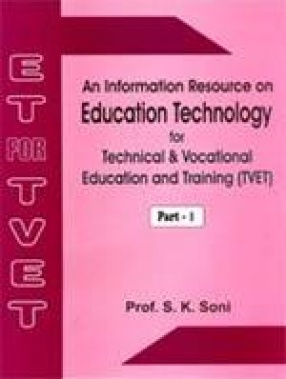
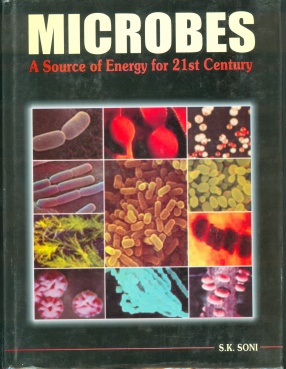
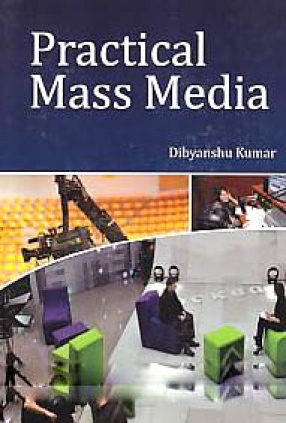
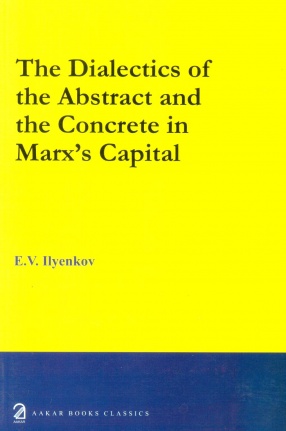
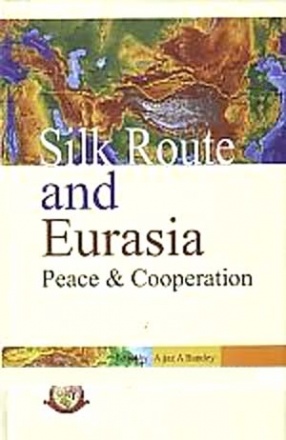
There are no reviews yet.